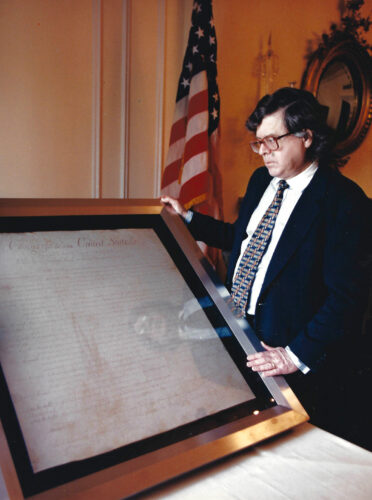MARTHA SEZ: ‘Party like it’s 1776’
They’re here!
Every year visitors to the Adirondacks, including, but not limited to, campers, hikers, climbers, bikers, boaters, fly fishing enthusiasts, artists, photographers and Summer People reliably arrive for the Fourth of July.
It’s the beginning of our summer season.
The fireworks that for many years were a beloved event at the Ausable Club are but a nostalgic memory; but Keene’s annual Community Day, now in its third year, is creating its own traditions. This year’s Keene Community Day will be held on Saturday, July 5, at 5 p.m. on Marcy Field in Keene Valley. A rain date has been scheduled for Sunday, July 6. There will be food vendors, live music, games for children, tug of war contests, entertainment and fireworks.
I hope the weather will be good for the campers coming to the area. Food tastes so good when it’s cooked out of doors in a cast iron skillet over a campfire. (Although I’m not sure where and when campfires are actually allowed, so don’t tell the forest rangers I told you to build one.) This brings me to a highly controversial point. If you do cook in a cast iron skillet, whether over a fire or on your stovetop, how will you clean it afterward?
I have been told in no uncertain terms by several friends that soap and water must never touch the sacrosanct surface of a cast iron skillet. Oh yes, they say, the skillet LOOKS sturdy enough, and has been known to deliver a hefty wallop. Any attempt to actually clean it, however, will ruin its patina, which, to hear them talk, must be as delicate as a wild flower petal. Yes, I say, but I cook spaghetti sauce in mine! Doesn’t matter, they insist.
Oh well, no sense getting all worked up about cast iron skillets. We should be thinking about Independence Day, our country’s No Kings Day, when the original 13 colonies officially broke away from the rule of “mad” King George III of England on July 4, 1776.
The original 13 colonies were New Hampshire, Massachusetts, Rhode Island, Connecticut, New York, New Jersey, Pennsylvania, Delaware, Maryland, Virginia, North Carolina, South Carolina and Georgia. The Second Continental Congress was composed of representatives from the colonies. They united in support of the American Revolution and Revolutionary War, in order to establish American independence from the British Empire.
The Committee of Five was a group of delegates to the Second Continental Congress — John Adams, Benjamin Franklin, Thomas Jefferson, Robert R. Livingston and Thomas Jefferson — who were chosen to draft the Declaration of Independence. Jefferson consulted with the other members, but basically wrote the Declaration of Independence himself in isolation.
Congress removed Jefferson’s denunciation of King George III (who Jefferson called a “plundering tyrant”) for importing the slave trade, and approved the Declaration two days later on July 4.
John Adams wrote to his wife Abigail: “The second day of July 1776, will be the most memorable epoch in the history of America. I am apt to believe that it will be celebrated by succeeding generations as the great anniversary festival. It ought to be commemorated as the day of deliverance, by solemn acts of devotion to God Almighty. It ought to be solemnized with pomp and parade, with shows, games, sports, guns, bells, bonfires, and illuminations, from one end of this continent to the other, from this time forward forever more.”
Fifty-six men signed the Declaration, including John Adams, Thomas Jefferson, Benjamin Franklin and yes, John Hancock. No, George Washington was not a signatory of the document.
Thomas Jefferson and John Adams, the only two signers of the Declaration of Independence who later served as United States presidents, both died on July 4, 1826, the 50th anniversary of the Declaration.
Just one more thing about the cast iron skillets (CIS). After scholarly research on the subject, I have learned that Good Housekeeping Magazine recommends using dish soap and water to clean them.
Even Popular Mechanics does not absolutely forbid the use of water when merely “wiping it out with a paper towel,” the religiously adhered to CIS cleaning ritual, isn’t enough. As Joseph Truini writes, while “many people would shriek in horror at the thought of washing cast iron in water,” a scrubber and water can be used. Both GH and PM advocate the use of coarse salt as a scrubbing agent, heating to dry, and oiling to preserve that treasured patina.
Party like it’s 1776, and have a good week!
(Martha Allen, of Keene Valley, has been writing for the News since 1996.)




